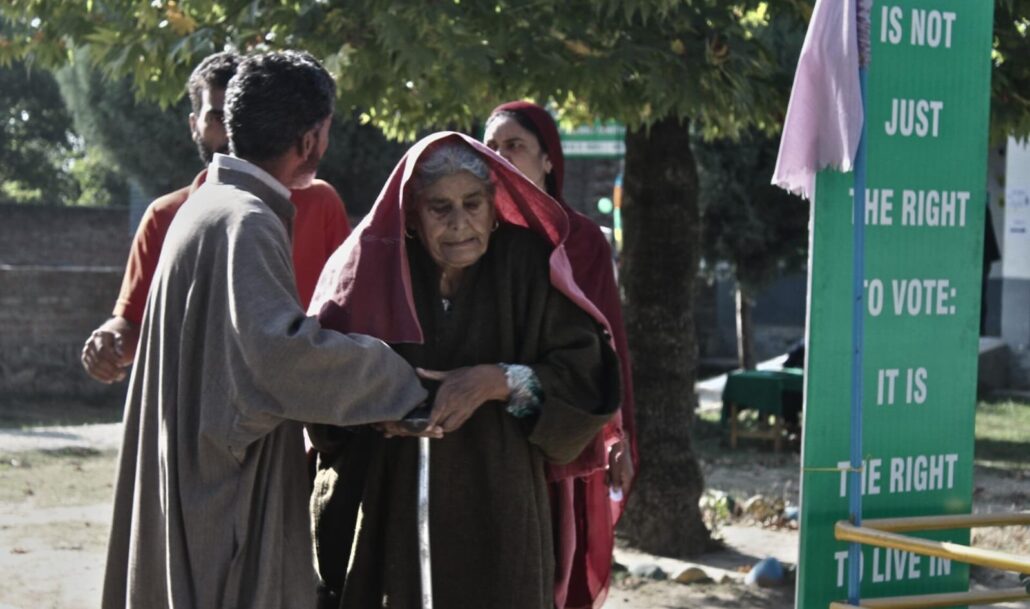
Meer Irfan
Shopian district, once the hoth bed of militancy, is witnessing massive crowd of voters in most of polling booths installed across the district.
The Shopian District, divided into two Assembly constituencies, has a total of 2,09,062 registered voters. This includes 1,04,894 male voters, 1,04,161 female voters, and 7 transgender voters.
To ensure a smooth voting process, the Election Commission of India (ECI) has set up 251 polling stations across these two constituencies, facilitating voter participation in the upcoming elections, official said.
Amidst the long queues of voters outside a polling booth in the Zainapora area of Shopian stands 71-year-old Zaina Begum. Carrying a stick in her hand, she makes her way to the polling booth.”We are seeking change. We are tired of not having anyone to address our concerns.”
In Shopian, a significant number of people, primarily women, have come out in large numbers to express their concerns about the government’s reduced rice allotment, a policy change that has been in effect since January 2023.
In Shopian, where apple production dominates local agriculture, residents heavily rely on government-supplied rice to meet their dietary needs. Since January 2023, a significant number of people, primarily women, have been voicing their concerns over the government’s reduction in rice allotment, a move that has deeply affected the valley.
Initially, the quota per person was reduced from 15 kilograms to 10, and last year it was further slashed to a mere 5 kilograms per month.
This drastic cut in food grain supplies through the public distribution system has plunged Kashmir into a severe food crisis, sparking widespread panic and anger. As rice is the valley’s staple food and primary source of carbohydrates, this reduction has had a particularly harsh impact on the local population.
The protests have been especially pronounced in urban areas, where residents are forced to buy rice from private dealers at exorbitant rates.
“We are suffering a lot, mostly due to the scarce rice supply we get. We had been getting ample rice for our families, but for more than a year now, we are forced to buy ration at local shops that sell rice for as high as 35 to 40 rupees a kilogram. This has hit us very hard economically, and most of our earnings go to buying food items,” said Zaina, a local resident.
Rice allotment has become such a pressing issue in the Kashmir Valley that all political parties in the region have promised to redesign the Public Distribution System and increase rice quotas in their manifestos.
Locals in Shopian are voting with the hope that new representatives will overturn the current policy and restore the previous quantities. “We have come out only to make sure that we get rice like we used to earlier. Buying rice from private dealers has drained us of all our earnings,” explained Mohammed Ramzan, another resident.
The discontent isn’t limited to rice shortages. People are also angry about the reduction in government-supplied kerosene, which is essential for multiple uses, including the machines used in orchards.
“We do not want anything new. He (Modi) has done nothing for us. He just claims to be helping the people of Jammu and Kashmir, but in reality, he is snatching our work, our livelihood, and our food from us. All we seek is that the rice allotment be restored to what previous regimes have been giving us,” lamented Abdul Rashid, expressing the frustration shared by many in the valley.
Haleema, a woman waiting at the polling booth, added, “There have been constant protests seeking an increase in the rice allotment, but our issue has never reached the officials. We need local representatives who listen to our demands.”




